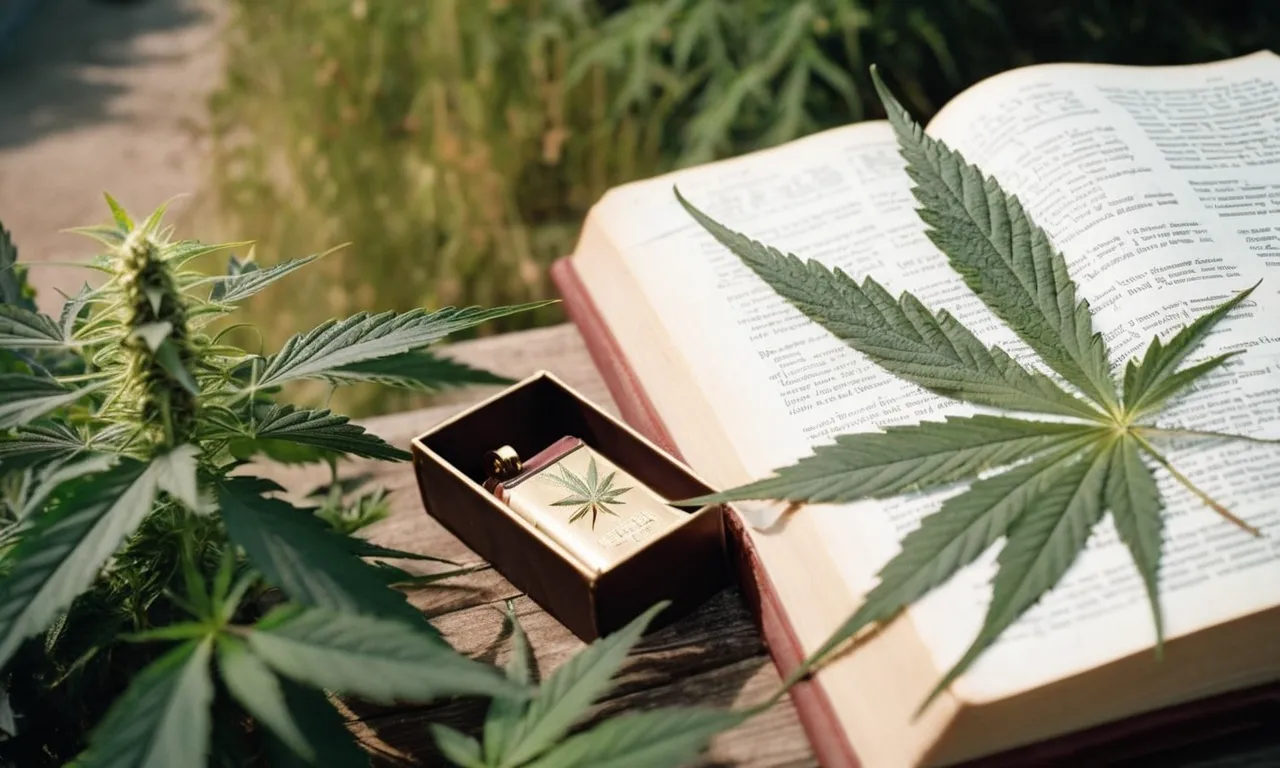What Does The Bible Say About Weed?
The legalization of marijuana in many parts of the world has led many Christians to wonder about the biblical view on cannabis. With shifting attitudes in society, is smoking weed acceptable for followers of Christ? Let’s take an in-depth look at what the Bible says about weed.
If you’re short on time, here’s a quick answer to your question: The Bible does not directly mention marijuana or say that smoking weed is a sin. However, there are principles in the Bible that Christians should consider in thinking about cannabis use.
The Bible does not directly mention marijuana
When exploring what the Bible says about marijuana, it is notable that cannabis is never explicitly mentioned. The plant was likely not known or utilized for its psychoactive properties during biblical times. However, some passages provide principles for considering the ethics of cannabis use.
The Bible does not explicitly prohibit cannabis use
There are no clear biblical statements forbidding or condoning the use of marijuana. While texts warn against drunkenness and addiction, the Bible does not directly address the recreational or medicinal use of cannabis.
Biblical passages about herbs and plants do not refer to marijuana
Some speculate whether verses discussing herbs, grasses, and plants refer to cannabis. For example, Genesis 1 discusses seed-bearing plants created by God. However, experts believe references are too vague to indicate marijuana.
Marijuana was not known or used in biblical times
Archaeological and historical evidence suggests that psychoactive cannabis originated in Central Asia and was not introduced to the Near East until after the biblical era. Therefore, it is unlikely that texts written before 500 BC could have mentioned marijuana directly.
Principles about drug use in the Bible
Warnings against drunkenness and loss of self-control
The Bible contains several warnings against excessive drinking and drunkenness, which can lead to loss of self-control and unwise actions. For example, Proverbs 20:1 states, “Wine is a mocker and beer a brawler; whoever is led astray by them is not wise.”
Ephesians 5:18 instructs, “Do not get drunk on wine, which leads to debauchery. Instead, be filled with the Spirit.” While the Bible does not specifically prohibit alcohol use, it clearly cautions against intoxication and addiction.
Instructions to avoid harmful addiction and dependence
In addition to warnings against drunkenness, the Bible advises avoiding dependence on substances. Passages like 1 Corinthians 6:12 say, “I will not be mastered by anything.” Developing a psychological or physical dependence on a drug that harms the body goes against principles of stewardship and self-control.
While the Bible does not directly address recreational drug use, Christians are called to sobriety and directed to avoid states of intoxication and addiction.
Calls to sobriety, righteousness and avoiding sin
Scripture encourages sobriety, righteousness, and avoiding sin. 1 Peter 1:13 says to “be sober-minded.” Titus 2:11-12 tells believers to live self-controlled, upright lives. While intoxicated, people often make regrettable decisions and excuse sinful actions.
The Bible instructs Christians to be filled with the Holy Spirit rather than drunk on wine (Ephesians 5:18). Followers of Christ are called to live according to God’s standards, with clear judgment unhindered by substance use.
Additional factors for Christians to consider
Whether it is legal in your area
Christians should consider whether the use of marijuana is legal in their city, county, and state. Even if it is medically or recreationally legal in some places, Christians are encouraged to follow the laws of the land they live in (Romans 13:1-7).
If marijuana is illegal where they live, Christians should think twice about whether the benefits outweigh the risks of legal punishment.
Potential health risks and addiction
Like other substances, marijuana carries health risks that Christians should weigh seriously. Marijuana smoke contains carcinogens and can irritate lungs. Some research links marijuana use to increased risk of schizophrenia or psychosis, especially in those predisposed to mental illness.
While not everyone gets addicted, marijuana can be psychologically addictive for some. Christians should consider whether recreational use could lead to dependence and diminished self-control (1).
Effects on your testimony and influence
Christians are called to be witnesses for Christ with their lives (Matthew 5:16, 1 Peter 2:12). Using marijuana recreationally could damage a believer’s Christian testimony and influence in the eyes of some. Even if it’s legal and not addictive for that individual, some may find it offensive.
Christians should consider if their recreational use could drive people away from hearing the gospel. If so, it may be wise to abstain (1 Corinthians 10:23-24).
Stumbling other believers
In a similar vein, the Bible warns against causing a fellow believer to stumble by our freedoms (Romans 14:13-23). If a mature Christian’s marijuana use would cause a younger believer to follow suit and violate their conscience, it may be loving to abstain.
Christians should be willing to limit freedoms if it helps protect and build up others in Christ.
Conclusion
In summary, the Bible does not directly address whether Christians should use marijuana. However, biblical principles about sobriety, self-control, wise living and avoiding harmful addiction should guide believers in their personal choices regarding cannabis use.
Christians should thoughtfully and prayerfully evaluate their motivations and the effects of weed on their walk with God.








